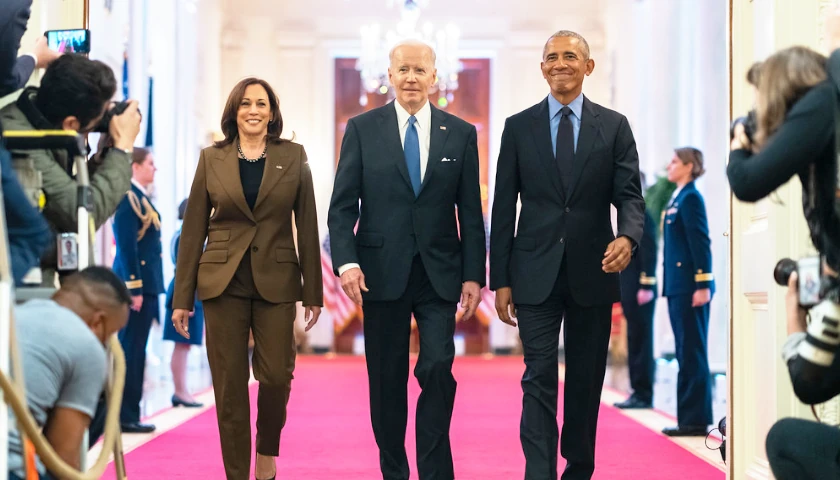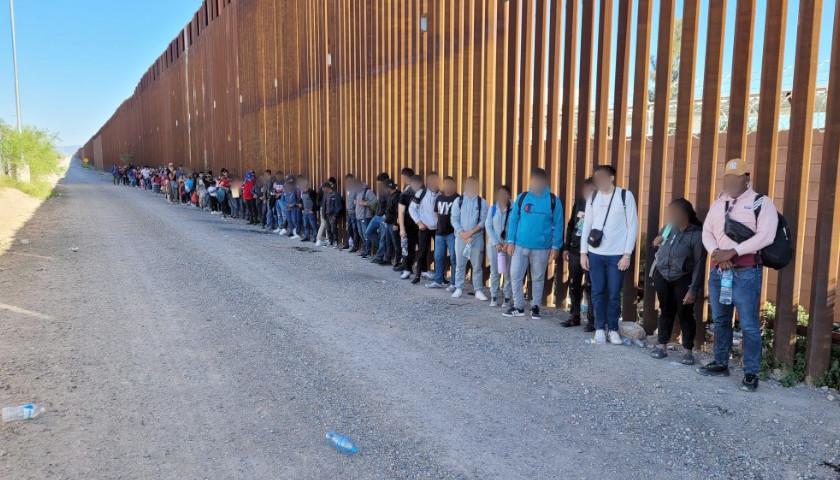by Merissa Hamilton
Over thirty years ago, then-presidential candidate George H.W. Bush stood onstage at the Republican National Convention and infamously promised, “Read my lips, no new taxes.” That promise may have won him the election, but it was also his undoing as he would later sign a budget reconciliation bill that included tax increases. Fast forward to today and President Joe Biden finds himself in a similar position having made a promise on the campaign trail that he is unable to keep now that he is in the Oval Office—and it is Arizonans who will pay the price.
Throughout the campaign, in state after state, candidate Biden emphatically and repeatedly proclaimed, “No one who makes less than $400,000 a year will pay a penny more.” His running mate Senator Kamala Harris echoed the promise on multiple campaign stops, including Phoenix, telling voters, “We are not going to raise taxes on anyone making under $400,000 a year.” However, once all the confetti is swept up from the victory parties, reality tends to intrude on those campaign promises. Nowhere is that more evident than when it comes to paying for the long list of agenda items the Biden administration would like to enact—all detailed in the budget resolution working its way through Congress.
The budget is currently clocking in at a cool $3.5 trillion which is a high price tag when you consider that inflation is on the rise as the economy remains shaky in the ongoing COVID-19 pandemic. Ironically, the Biden administration, while advocating for massive spending on Capitol Hill, also doubled its forecast for inflation to 4.8 percent. Now, not only can Americans expect to see higher consumer prices, but they can expect to see higher taxes as well because somebody must pay for all that new spending.
A Tax Foundation analysis found that “Biden’s proposals would result in an average tax increase in most states throughout 2022 to 2031…” Arizonans would see an average increase of $750 to $1000 by 2026. Another analysis by the Tax Policy Center concluded that 75% of families making $75,000 to $100,000 per year would be worse off under the president’s plan. The budget also fails to preserve the individual tax cuts enacted by Congress in 2017 which reduced the rates for taxpayers across all income levels and must be extended in 2025. If no action is taken, then those rates will increase.
More funds are needed, however, for the budget wish list so the Biden administration and congressional Democrats are looking for other ways to offset that spending. Rather than simply trim their list or eliminate any number of wasteful government programs, they have instead set their sights on a provision in the Medicare Part D prescription drug program. This provision ensures that senior citizens and people with disabilities have strong coverage and protected access to the medicines they need. They can enjoy such access because of a non-interference clause (NI) that keeps the federal government out of the private drug price negotiations that occur between pharmaceutical manufacturers and Medicare Part D insurance plans or pharmacy benefit managers.
Democrats want to modify the NI clause and allow federal bureaucrats to negotiate the prescription drug prices, ostensibly to save money that they will then turn around and spend. They may want to reconsider that plan as the Congressional Budget Office concluded that modification “would have a negligible effect on federal spending because we anticipate that under the bill the Secretary would lack the leverage to negotiate prices across the broad range of covered Part D drugs that are more favorable than those obtained by PDPs [prescription drug plans] under current law.”
Given Biden’s tax pledge promise, hard-working taxpayers and senior citizens here in Arizona and across the country will not look too kindly on being handed a $3.5 trillion bill for new spending by Washington—they may seek a refund come election time
– – –
Merissa Hamilton is the Chairwoman of Strong Communities Action and a FreedomWorks Ambassador activist. She previously was a candidate for Phoenix Mayor and served as Chair of the Arizona House Policing Sub-Committee of the Ad Hoc Criminal Justice Reform Committee at the Arizona Legislature. She lives in Phoenix, AZ.





